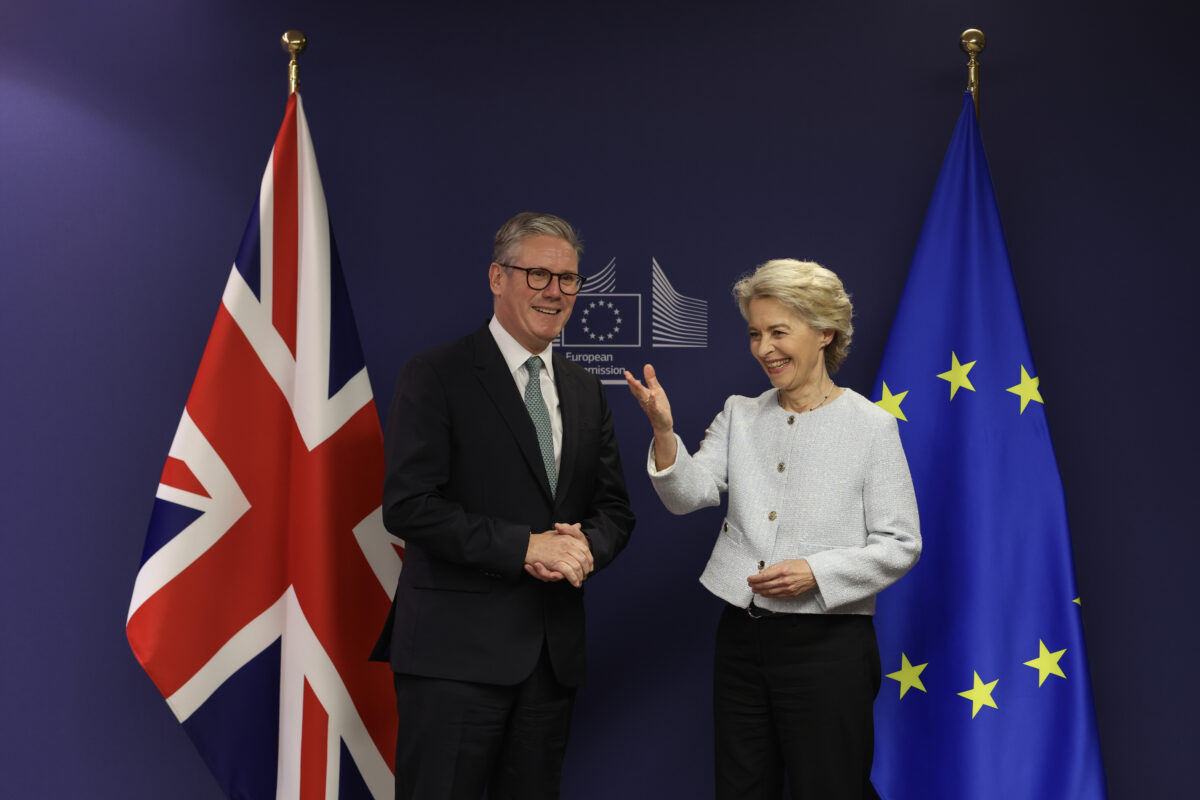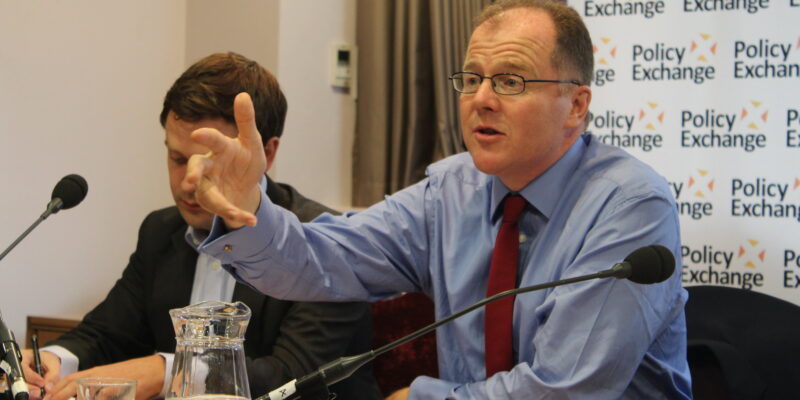Off to a rocky start? UK-EU relations and the Labour ‘reset’
The UK Government’s “reset” plan rings a little hollow – and our European allies know it.

Earlier this month Keir Starmer’s went to Brussels to meet the President of the European Commission, Ursula von der Leyen, in a much–heralded start of a “reset” of the United Kingdom’s relationship with the European Union (EU). A genuine re-set of relations was always going to be a challenge given the red lines established by the Labour Party in the UK General Election. Labour’s manifesto said that:
“There will be no return to the single market, the customs union, or freedom of movement. Instead, Labour will work to improve the UK’s trade and investment relationship with the EU, by tearing down unnecessary barriers to trade. We will seek to negotiate a veterinary agreement to prevent unnecessary border checks and help tackle the cost of food; help our touring artists; and secure a mutual recognition agreement for professional qualifications to help open up markets for UK service exporters.”
The manifesto also contained no explicit demand for financial service equivalence and data adequacy, nor help for hauliers, and all mention of the Horizon research programme had been dropped because the Tories had already agreed to rejoin it anyway. The road to this commitment evolved from a five point plan which included opposition to the all-EU free movement of people.
Importantly, the policy framework in the manifesto had originated from Starmer’s inner circle. There was no party validation until the 2023 National Policy Forum meeting, at which pressure from the leadership made it clear that no amendments would be passed unless previously approved by the NEC.
Labour’s leadership have attempted to broaden the conversation by raising Defence and Security, which is basically an attempt to trade the UK’s relative strength in military capability for ‘single market access with opt-outs’.
European reaction: still waiting for London to get real
The EU will be reluctant to make concessions, and attempts to carve out opt outs may undermine the broader aims of a ‘reset’ of relations, reinforcing the point that the UK remains as troublesome an ally outside of the EU as it was when it was a member. There are several options going forward but they will all require compromises from the UK side. The first will be a challenging and potentially lengthy Swiss-style negotiation seeking to improve access to the UK single market – though notably, the Switzerland accepts freedom of movement and is part of the Schengen area. Or, a more substantive overarching Norway-style membership of the European single market. Or the full restoration of the UK’s diplomatic position to secre the economic growth and the financial well-being of the whole of the country, i.e., to begin a negotiation to rejoin the EU under Article 49 and meet the Copenhagen criteria which includes acceptance of the EU acquis and Charter of Fundamental Rights. A key faultline in the UK Government’s approach lies in its belief that we do not need the single market to meet its overall ‘growth mission’ for the UK.
Labour’s continued attachment to renegotiation of the UK’s engagement in the single market, and the commission’s reticence to engage on these terms, has been highlighted by the British press over the last month.
The provocative way in which the Labour government have spurned the EU’s proposals may be one of the reasons that the Commission have resurrected their infringement proceedings. The FT report that they have a series of preconditions for a new UK-EU relationship, the first of which is to implement in full the terms of the Withdrawal Agreement, particularly as it relates to trade with Northern Ireland, but also on the protection of the rights of EU citizens resident in the UK prior to Brexit. In addition, the Commission are very committed to a “Youth mobility scheme”, which the Commission have softened twice and the Labour Party continues to reject.
These talks are still at an early stage and it is difficult to know where exactly they will land in the end. But it has hardly been an ideal beginning to the ‘reset’, even if the red lines established by the Labour Party were always going to inhibit a fuller and more meaningful collaboration. Indeed, the Independent reports that the meeting was:
“… a blow to the Prime Minister, the EU repeatedly pointed to Britain’s existing arrangements with the bloc – Rishi Sunak’s Windsor Framework and Boris Johnson’s Trade and Cooperation Agreement (TCA) – calling for the ‘full and faithful’ implementation of those deals. It could suggest there is little room for any major new agreements until existing plans are fully in place. Currently parts of the TCA are not in place, such as repeatedly delayed Brexit checks on EU imports.”
This is as close to “come back when you’re ready to say something interesting”, as the EU gets.
October 14, 2024
Brexit Spotlight is run by Another Europe Is Possible. You can support this work by joining us today. The website is a resource to encourage debate and discussion. Published opinions do not necessarily represent those of Another Europe.





